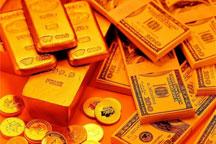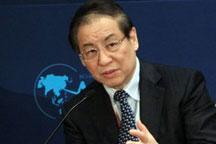 Apr. 15, 2025
Apr. 15, 2025
Weather
Finance
China´s Q1 fiscal revenue rises 34%
China´s fiscal revenue rose more than one-third, year on year, to nearly two trillion yuan in the first quarter. That´s approximately 290 billion US dollars.
ABC selects five IPO underwriters
Agricultural Bank of China (ABC) has selected five foreign investment banks to underwrite its long-awaited initial public offering (IPO) in Hong Kong after holding a "beauty contest" among potential candidates, a source familiar with the matter told China Daily on Wednesday.
China to float $4 bln book-entry treasury bonds
China´s Ministry of Finance (MOF) will float 20-year book-entry treasury bonds with a total par value of 28 billion yuan (4.1 billion U.S. dollars) Thursday, the ministry said.
HK exchange fund´s foreign assets up 13 bln HKD
Hong Kong´s Exchange Fund´s foreign assets amounted to 1.93 trillion HK dollars in March, up 13.8 billion HK dollars from February, the Monetary Authority said on Wednesday.
Oil settles near 84 dollars on oversupply concerns
Oil prices fell for a fifth day on Tuesday as oversupply concerns weighed on market ahead of weekly inventory report.
Gold slips amid caution over Greece debt crisis
Gold futures on the COMEX Division of the New York Mercantile Exchange ended lower on Tuesday, as Greece debt woes still dominated and let investor worry about euro zone´s medium-term outlook. Sliver and platinum both fell.

China´s lending slumps in March
Economic data released Monday show the issuing of new credit in China fell further in March. Regulators controled lending growth to avoid overheating. The nation´s commercial banks extended a smaller-than-expected 510 billion yuan or 75 billion US dollars last month, 190 billion yuan down from February.

March foreign exchange reserves at $2.4471 trillion
According to the People´s Bank of China, China´s foreign exchange reserves hit a new high of 2.4471 trillion U.S. dollars at the end of March. That´s up 25 percent from last year. The PBOC says China´s foreign exchange reserves increased 48 billion U.S. dollars in the first quarter, compared to a gain of 126.5 billion U.S. dollars in the fourth quarter.

China bank lending slows
China´s central bank says, the pace of Chinese bank lending slowed. Figures from the People´s Bank of China show, in March, new lending slowed to 510 billion yuan. This is well below forecasts of a 750 billion yuan rise. February´s number totaled nearly 700 billion yuan.
Shanghai Int´l Jewellery Expo closes
The 2010 Shanghai International Jewellery Expo closes on Monday afternoon.
CBRC clarifies Liu Mingkang´s comments
China´s banking regulation commission has released a statement, clarifying comments made by its chairman, Liu Mingkang, at the Boao Forum for Asia.

CBRC wants different lending policies
China Banking Regulatory Commission Chairman, Liu Mingkang, wants financial institutions to adopt different policies to mortgage lending. The head of the banking regulator, Liu Mingkang, is urging banks to carry out different lending policies for first and second home buyers.
Snow: Let China decide on RMB
It won´t be a surprise if the Chinese government soon shifts its currency policy in the light of mounting inflationary pressure in the nation, although it is up to China itself to decide the timing of any yuan revaluation, former US Treasury Secretary John Snow said on Friday.

China committed to stabilizing yuan, reining in inflation
China´s central bank governor says the bank´s main task is to stabilize China´s currency, the yuan, and to rein in inflation. He made the remarks at the annual Boao forum on the southern China´s island province of Hainan.

RMB 10 bln pension fund irregularities
A two year investigation and regulation scheme has found around 10 billion yuan worth of irregularities in the national pension fund. China´s Ministry of Human Resources and Social Security, or MOHRSS, says, the 2-year nationwide campaign covered 5 categories of pension fund.
China unveils stock index futures in Shanghai
A ceremony was held Thursday in Shanghai to mark the debut of stock index futures on the Chinese mainland, which observers believe was a step forward in the city´s efforts to develop itself into a risk management center for the whole Asia-Pacific region.
China Everbright Bank becomes first domestic bank to go carbon neutral
The China Everbright Bank (CEB) signed an agreement with the Beijing Environment Exchange (BEE) Thursday, according to which the bank will buy carbon credits to offset its carbon dioxide emissions generated in daily operation.

Stock index futures launch ceremony
The stock index futures launch ceremony has taken place in Shanghai. The event comes after four years of extremely careful preparations, representing a giant step by China in the development of its capital markets.
Beijing property market continues boom
The Beijing International Property Fair has opened. Despite a series of tightening policies from the central government, housing prices in the capital continue to rise.
Development of stock index futures
The scheme was conceived during the early 1980s, when most Western countries suffered from inflation and speculation due to the crude oil crisis.
 2009 China Central Television. All Rights Reserved
2009 China Central Television. All Rights Reserved